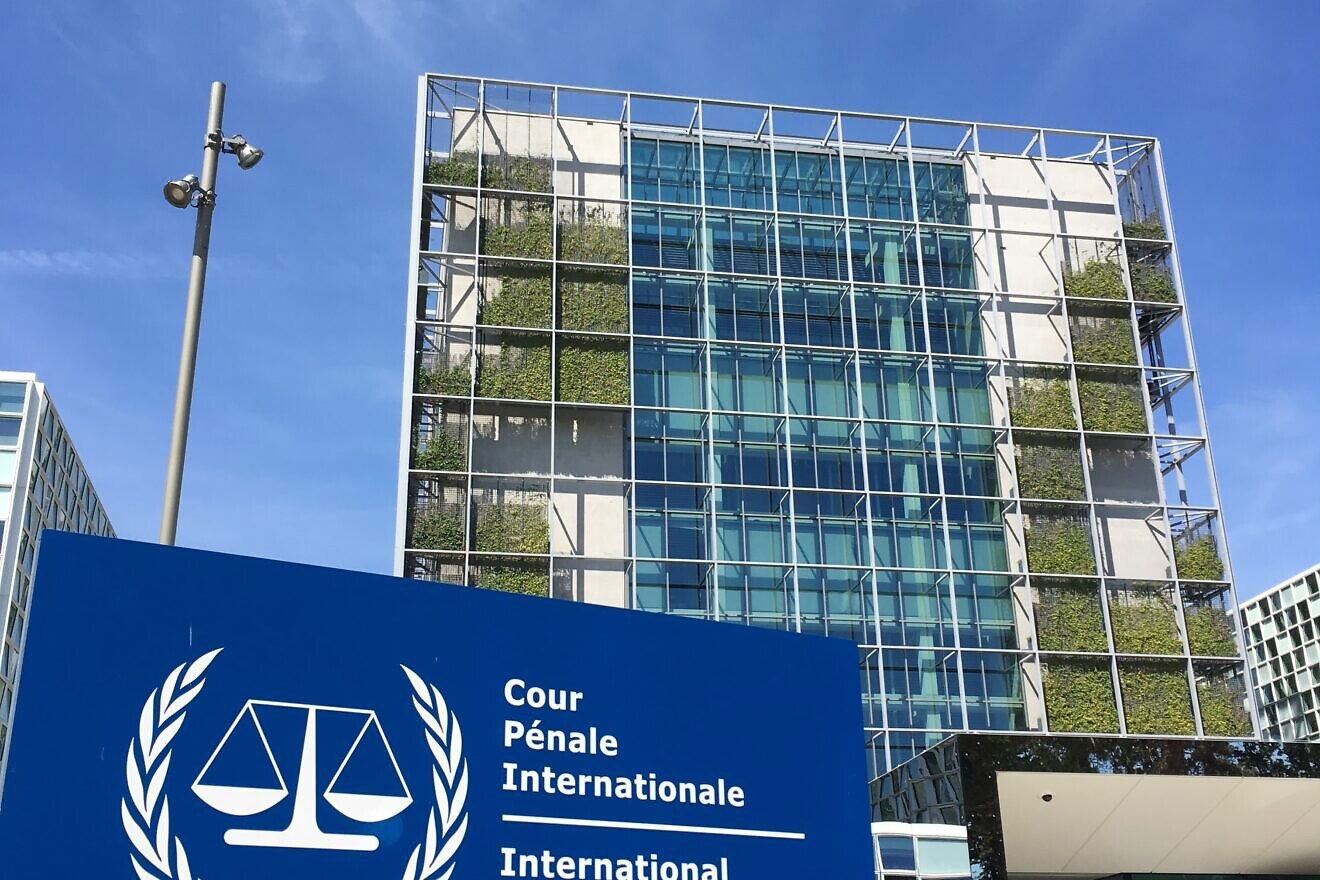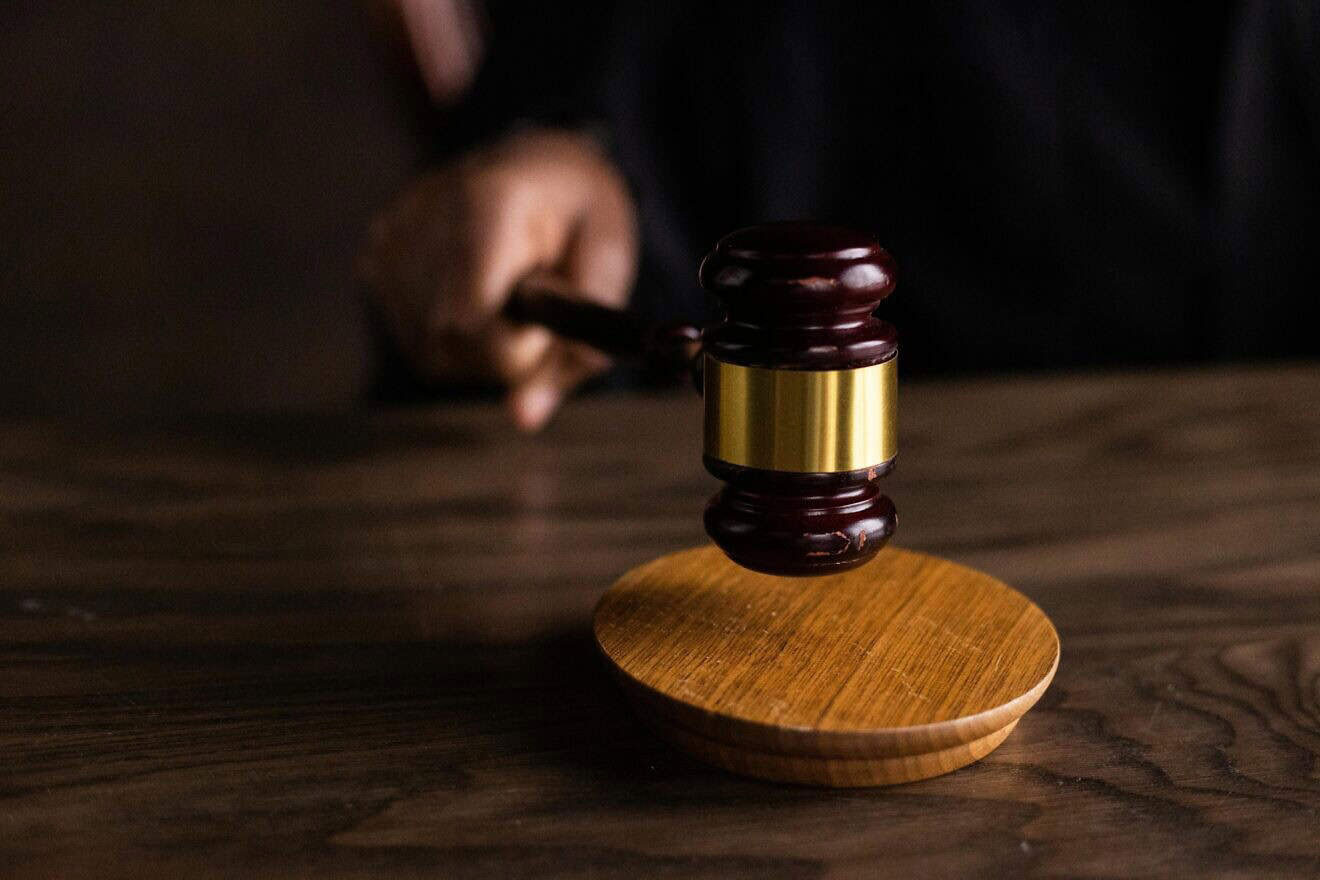
Courtesy of JTA. Photo credit: Michael Currie/SOPA Images/LightRocket via Getty Images
Neo-Nazi protesters make a Nazi salute at a protest in Melbourne, May 13, 2023
(JTA) — In the wake of a series of neo-Nazi incidents, Australia’s government is moving toward passing legislation to ban the use of Nazi symbols on clothing, flags and websites and in other domains.
Trading in Nazi memorabilia will also be banned, but religious, academic and other exemptions will be allowed. Before the Third Reich, the swastika was known first and foremost as a religious symbol in Hinduism, Buddhism and Jainism.
“There is no place in Australia for symbols that glorify the horrors of the Holocaust,” Australia’s Attorney-General Mark Dreyfus said on Thursday. “And we will no longer allow people to profit from the display and sale of items which celebrate the Nazis and their evil ideology.”
The Senate’s Legal and Constitutional Affairs Legislation Committee recommended a ban last month in a move that was applauded by Jewish leaders. Dreyfus, who is Jewish, said that the law will penalize offenders with up to a year in prison.
Peter Wertheim, co-CEO of the Executive Council of Australian Jewry, told the Jewish Telegraphic Agency that “there has been a proliferation of the public display of Nazi symbols in different parts of Australia” since the end of 2016.
The Victoria state’s strict COVID-19 restrictions led to a far-right anti-lockdown movement which, according to Andre Oboler, CEO of the Online Hate Prevention Institute, “allowed a normalization with some people being ambivalent about open Nazism.” Community outrage brewed after a couple flew a swastika flag above their Melbourne home in 2020. Victoria eventually banned the public display of Nazi symbols in 2021.
In March, The Age published an investigation of active soldiers’ neo-Nazi links, following a 2021 SBS report on men’s fitness centers used by white supremacist networks that employ Nazi symbols.
Then on March 18, a group of 30 people from a neo-Nazi group called the National Socialist Network showed up to a rally headed by British anti-transgender activist Kellie-Jay Keen-Minshull in Melbourne. The neo-Nazi rally-goers, all dressed in black with their faces covered, marched onto the steps of the city’s parliament house, where police allowed them to stand in a line facing the crowd and repeatedly perform a Nazi salute.
Victorian Premier Daniel Andrews wrote on social media: “Nazis aren’t welcome. Not on Parliament’s steps. Not anywhere.”
“Transgender people, the targets of the neo-Nazis at the recent anti-trans rally in Melbourne, Jews, or other oft-demonized communities should not have to face situations where this evil is allowed to happen with police having no legal avenue to stop it,” said Michael Barnett, the co-convenor of Aleph, a Melbourne-based advocacy group for LGBTQ+ Jews, after the March rally.
In May, a Victorian council canceled a family-friendly drag queen-led story reading hosted at a library and other LGBTQ+ events following a series of threats from far-right groups. Later in the month, neo-Nazis performed a Heil Hitler salute while attending an anti-immigration rally at Melbourne’s parliament building to oppose “ethnic replacement.”
“This was not an isolated incident,” Oboler said in reference to the March rally. “There is a rise of the use of Nazi salutes, other Nazi symbols, and open neo-Nazism not just in Australia but internationally.”
Barnett said bans will send a message of consequences for “expressions of Nazi ideology designed to instill fear.”
Australia is home to the largest per-capita Holocaust survivor population outside Israel.
Wertheim said that bans “would only scratch the surface” in Australia, and new legislation “would not obviate the need for a more systematic, whole-of-government approach to address the problem of extremism.”
“We have argued the need to move beyond banning specific symbolism and to instead directly tackle Nazism and neo-Nazism,” Barnett said. “We have been warning about this, monitoring the threat, and taking action, but there is far more to be done.”




